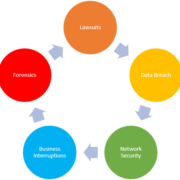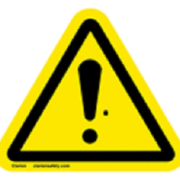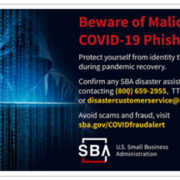If You Didn’t Make This Purchase, Please Call Us
Do you shop online? If so, take notice. Scammers are sending emails that look amazingly like the real thing. One of the clues you want to look for to identify the email as spam is a phrase similar to this: “If you didn’t make this purchase, please call us.”
Reputable Companies
These spam e-mails are seemingly from reputable companies such as Amazon, PayPal, Norton, and even Kaspersky who was the first company to identify this scam. They sit in your inbox waiting for you to react to the “If you didn’t make this purchase, please call us.” It is an old form of cold calling scams updated to be more efficient and craftier by persuading potential victims to call them rather than the other way around.
How it Works
If you are like most people, your email inbox is loaded with appropriate emails, business and personal, as well as the typical ads and other junk emails. These spam emails will look authentic as they identify a high-end product (think cell phone, computer, expensive jewelry) which you supposedly ordered online from a well-known company. When faced with a fake order for a lot of money, you may very well respond immediately and emotionally without taking the time to think about what you are doing.
What to Expect
Kaspersky offers two examples of what these spam emails may look like:
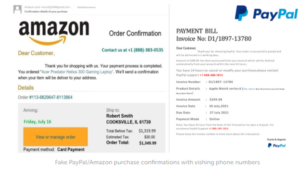
Remember, these emails could also target financial purchases. They can even appear as a purchase of cryptocurrency for large sums of money.
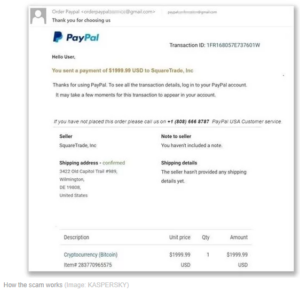
How To Avoid Becoming a Victim
It is human nature to panic if you see an email that says you have ordered an expensive item that you know you didn’t order. The line “If you didn’t make this purchase, please call us” would automatically give you hope that this mistake can be fixed. And that is what the scammers are banking on.
Concerned, because there are no links included, you call the number provided and speak with someone you think is a company employee. At this point, the scammers will probably ask you for your bank card information promising to remove the unauthorized charge from your account. You can imagine what happens at that point. Face it, they just scammed you.
When you make that call, they may take another direction, instead. They may trick you to download a Trojan that will infect your computer or transfer money to another account which they control. They just scammed you again.
Once you pick up the phone you are at the mercy of the scammers’ imagination.
The only way guaranteed to not become a victim is to not call them back.
What You Can Do
There are, according to Kaspersky, a few other actions you can take to guard against these emails. You can:
- Don’t click on any links in the email if there are some. Instead, log into the targeted account from your browser and check the orders listed there;
- If there is a possibility this purchase could be valid, check the transactions and the balance of the credit cards you might have used:

- Always a good idea, install a reliable antivirus utility with protection against financial attacks, phishing, and online fraud. For more information check out the blog Be safe on the Internet This New Year.
One last thing you can do to stay safe is when faced with something like this, take a moment to breathe and gather your wits about you. Then you act in a safe and controlled manner and not be at the scammer’s mercy.


